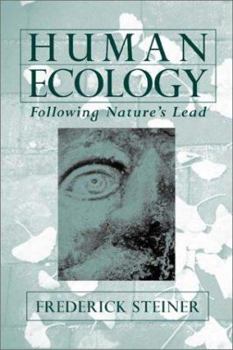Human Ecology: Following Nature's Lead
Human ecology is an emerging discipline that studies the interrelationships between humans and their environment, drawing on insights from biology, sociology, anthropology, geography, engineering,... This description may be from another edition of this product.
Format:Hardcover
Language:English
ISBN:1559639954
ISBN13:9781559639958
Release Date:October 2002
Publisher:Island Press
Length:256 Pages
Weight:1.15 lbs.
Dimensions:0.8" x 6.8" x 8.9"
Customer Reviews
1 rating
Good overview of a lot of ideas...
Published by Thriftbooks.com User , 21 years ago
Just finished the book, and am relatively impressed by it overall, while it obviously has a few weaknesses. Steiner divides the world hierarchically into chapters, starting at the smallest human scale (habitat) and working gradually up to a global scale. The book reads like an adademic work, and Steiner continually interrupts the flow of ideas with quotes and references to the work of others. It seems like his main goal was to include as many names of people as possible in the text (nearly every paragraph mentions someone new). The bibliography is lengthy. That does mean that if any particular concept appeals to the reader, they know exactly where it originated, and where to go to learn more, but makes the book more challenging to read. Intellectually engaging, perhaps. Overall, a good summary of an emerging field, along with plenty of review, critique, and synthesis of ideas. I'd recommend the book to "sustainability" types, the conservation-minded, ecologists, and (especially) city and regional planners.His main point: We, as humans, need to consider the environment and our relation to it. Especially as pertains to our everyday life experience.






